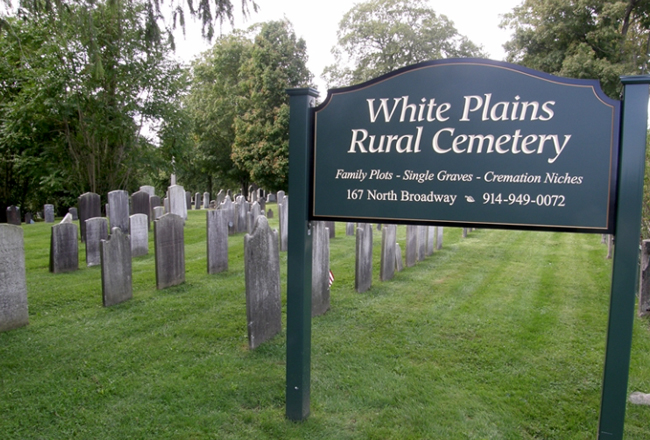[ad_1]
The White Plains Rural Cemetery Association should be allowed to build a crematorium, an appeals court ruled.
The town of White Plains had challenged a lower court ruling that the Zoning Appeal Board acted inappropriately in denying an exemption to the use of a crematorium.
But the zoning board’s decision was “arbitrary and capricious,” the Second Appeal Division ruled on Jan.30, upholding the lower court’s decision.
White Plains Rural Cemetery has operated as a private, non-profit, non-denominational cemetery since 1854. It spans 30 acres at 365 N. Broadway, between Interstate 287, the Metro-North railroad tracks , industrial properties and residences.
It is in a residential area but it predates zoning laws and has been classified as legal and non-conforming use.
In 2014, the cemetery applied for a building permit for a crematorium. It was operating at a loss. There was a lack of goods for burial grounds. He couldn’t afford to build a mausoleum and re-bury the bodies. But he recognized a growing interest in cremation, according to court documents, and saw a way to turn a surplus.
The building department refused the permit, believing that a crematorium was not an authorized use and that the cemetery would need an exemption.
The cemetery appealed to the zoning council.
The North Broadway Citizens Association opposed the proposed crematorium, citing the perception of “the burning of corpses at the site and the smell of people’s homes.”
Residents expressed their concerns during three public hearings on environmental impacts, real estate values ​​and traffic.
The cemetery responded with expert advice. The crematorium would not be “seen, heard or smelled by virtually any surrounding property”. It would be too far to alter the essential character of the nearest neighborhoods. While funerals typically attract 20 to 30 cars, cremations are attended by fewer people with one or two cars.
The zoning board rejected the cemetery argument and upheld the building commissioner’s denial of a permit. A gap would be necessary, he ruled, then denied the gap.
The cemetery asked the Westchester Supreme Court to overturn the decision.
Justice Helen M. Blackwood said in a 2017 ruling that the Zoning Board was correct in concluding that a crematorium is a separate and distinct use of a cemetery that requires an exemption.
The cemetery, she wrote, was to show that a gap was necessary to overcome a test.
He had to demonstrate that he could not make a reasonable return on the property as it is currently zoned, that the hardship was a result of the unique characteristics of the property, that the proposed use would not alter the character of the neighborhood and that the cemetery did not create difficulty.
The cemetery had established each item, she concluded.
The board’s refusal of a waiver was “arbitrary, capricious and devoid of rational basis,” she wrote, and was “ill-founded on widespread community opposition.”
She ordered the building commissioner to issue the building permit.
The city and the cemetery appealed against his decisions.
The council had acted reasonably in requiring a waiver, the appeal judges said, but the cemetery had demonstrated that it qualified for a waiver based on unnecessary hardship.
The city was represented by John G. Callahan, Legal Counsel, and Doreen Lusita-Rich. The cemetery was represented by Patricia Wetmore Gurahian of McCullough, Golderberger & Staudt of White Plains.
[ad_2]

